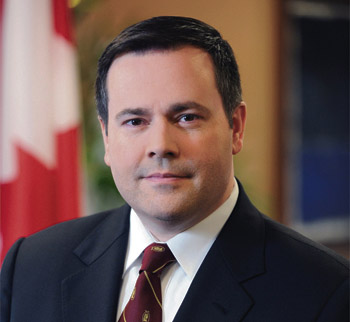A Federal Court judge has upheld an assessment by the former minister of citizenship and immigration that the Canadian Arab Federation (CAF) could reasonably be seen as supporting banned terrorist groups that are anti-Semitic.
The court ruled the minister at the time, Jason Kenney, was within his authority in deciding not to renew funding to the CAF to run an English language program for people new to the country.
The decision upholds a 2009 interim judgment that refused to order the ministry to reinstate funding pending a final outcome in the case.
In February 2009, Kenney became aware that the ministry was providing more than $1 million a year to CAF to run the Language Instruction for Newcomers to Canada (LINC) program.
Kenney asked his chief of staff to “ask the department to bring forward complete information on the contribution embarrassingly approved by our government for the radical and anti-Semitic Canadian Arab Federation,” the court recounted.
CAF had asked the court to review the minister’s decision to cease funding, arguing it was owed a duty of procedural fairness, that the minister was biased against it, that its right to free expression was abridged by the decision and that the minister’s decision was unreasonable.
The court rejected most of the CAF’s positions.
The court cited a series of events and statements by CAF officials that were raised by the minister as grounds for his decision:
• a flyer circulated by CAF President Kaled Mouammar, attacking former interim Liberal leader Bob Rae because of his wife’s involvement in the Jewish community;
• CAF-organized rallies supporting Hamas and Hezbollah that equated Israelis to Nazis and which included a sign threatening to kill a Jewish child;
• CAF participation in a Cairo conference attended by delegates from Hamas, Hezbollah and other terrorist organizations;
• Internet links to Hamas websites that showed Hamas operatives training;
• honouring Zafar Bangash, who referred to Canadians as infidels; and
• sponsoring an essay contest on the “ethnic cleansing” of Palestine, which the minister took as an allegation that Jewish people were engaged in genocide and which made the contest anti-Semitic.
Paul Calandra, parliamentary secretary to the prime minister, issued a statement saying the court ruling was a victory for common sense:
“Our government’s position is clear: organizations that appear to promote hatred, including anti-Semitism, or excuse violence and terrorism do not have the right, and should not expect, to receive tax dollars to deliver government services.”
Jewish groups applauded the ruling.
Shimon Fogel, CEO of the Centre for Israel and Jewish Affairs (CIJA), said, “We commend the court for its decision. Given CAF’s clear record of glorifying terror groups and spewing hateful rhetoric, Minister Kenney was right to deny it public funding. It’s particularly disturbing to think that an organization that holds views so diametrically opposed to Canada’s values was given a mandate to integrate new Canadians.”
“The court documents clearly point to evidence that the [CAF] is anti-Semitic and promoting extremist views that are a threat to Canada,” said Avi Benlolo, president and CEO of Friends of the Simon Wiesenthal Center.
“Newcomers to this country should be educated about Canadian values of respect and human rights, and not be inspired to form anti-Semitic and hateful opinions. The government of Canada cannot be complicit in this effort, and therefore did the right thing by withdrawing funds from the group… We recommend an additional review by the Canada Revenue Agency of this organization’s charitable status,” he added.
“The CAFs special brand of antisemitic and pro-terror propaganda has only served to hinder the multi-pronged fight to safeguard the Canadian public from the ever-growing problem of radicalization and extremism, both at home and abroad,” B’nai Brith Canada said in a statement.
In a statement, CAF president Farid Ayad said that his group “is in the process of appealing the decision and will not make any public statements regarding the decision for the duration of this process.”
